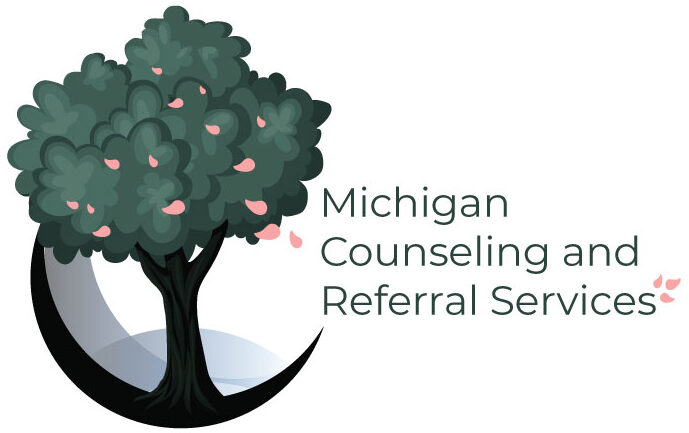Neurodiversity Affirming Autism Assessment
Autism assessors are few and far between these days. But what about assessors who can offer neurodiversity affirming Autism assessments? I’ll explain what this means below!

What is Neurodiversity?
Neurodiversity is a term that was developed by an Autistic Australian sociologist named Judy Singer. The term is meant to define a shift in the way we view mental health treatment and diagnosis.
The traditional medical approach to mental healthcare is “diagnose and treat”. This approach has been used primarily in mental health treatment due to our western biomedical success in treating certain diseases in recent history with it.
However, the Neurodiversity affirming approach takes a different stance on mental health treatment. Using this approach, I aim to view your conditions as differences in brain biology rather than labeling you as “disordered”.
There are a plethora of conditions that fall under neurodiversity. Viewing yourself as a person with neurological differences vs neurological deficits helps you use your strengths to interact with your environment much healthier for the long term!
For more information on Neurodivergent affirming therapy, check out my article on 7 things to know about Neurodivergent Affirming Therapy.
Neurodiversity Affirming Autism Assessment for Adults and Children
Many people think that Autism assessments are only for children, but that simply isn’t true! I can test adults, as well, for Autism. I also exercise sensitivities to the following age groups and identities:
- Pediatric (3-17)
- Young Adult (18-35)
- Adult (36-62)
- Elderly (63-End of Life)
- LGBTQIA+
- People of Color
- Trauma Background
- Other Medical Conditions
The reason I take all of these identities and ages into account (and more) is because Autism shows up differently for those of us with different intersecting identities. This is important for the accuracy of the diagnosis.
What Makes an Autism Assessment Neurodiversity Affirming Vs. “Typical”?
Mostly the practitioner!
For an Autism assessment to be neurodiversity affirming, the practitioner needs to have an understanding of neurodiversity. The practitioner needs to know how to effectively use their skills in addition to the psychometric measures used in order to make an accurate and non-pathologized diagnosis.
It also helps if the practitioner is neurodivergent! Us neurodivergent assessors are (unfortunately) a pretty rare breed in the field currently.

I don’t like the stuffy and intimidating testing environment. We will both be in the conversation, together, exploring your tendencies. I will not expect you to “perform” in any other way than yourself.
After all, we’re exploring you, not your masking. So first and foremost, my aim in testing is to help you feel comfortable and welcomed with me!
The battery of tests selected
The testing “battery” is the list of tests that we will use in your testing. This is super important! Not all tests are created equal and tell us different things.
Currently, my testing battery includes the following:
Pediatric (Ages 3-17)
- Autism Diagnostic Observation Schedule, Second Edition (ADOS-2)
- Administered directly with the child
- Autism Diagnostic Interview, Revised (ADI-R)
- Administered to caretaker(s) and participating family members
- Camouflaging Autistic Traits Questionnaire (CAT-Q)
- Administered directly to adolescent (13-17)
- Child Attachment Scale (CAS)
- Administered to caretaker(s)
- Adolescent Attachment Scale (AAS)
- Administered directly to adolescent (13-17)
- Trauma Symptom Checklist for Young Children (TSCYC)
- Administered to Caretaker(s)
- Trauma Symptom Checklist for Children (TSCC)
- Administered directly to adolescent (13-17)
Adult (Ages 18-End of Life)
- Autism Diagnostic Observation Schedule, Second Edition (ADOS-2)
- Autism Diagnostic Interview, Revised (ADI-R)
- Camouflaging Autistic Traits Questionnaire (CAT-Q)
- Adult Attachment Scale (AAS)
- PTSD Checklist for DSM 5 (PCL-5)
*All Tests for the Adult Battery are Administered Directly to You as the Client
The tests we choose to include in you or your child’s testing battery will depend on age and maturity level. This will be discussed at the initial intake session.

How will the Tests be Administered
Like I said, I’m in the room with you. I will not be a stuffy academic waiting for you to respond and judging you.
If you’re a kiddo, I want to be on the floor with you. If you’re an adult with a childlike spirit, I want to highlight and explore that with you in a non-pathologizing way.
Basically, I’m not going to be a plank. Exploring yourself is a highly engaging, interactive, and fun process!
My goal is to highlight the traits that make you You!
How the Report is Written
The manner in which the report is written is super important to your experience being tested. I’m not one to label or pathologize in written reports, as well as in spoken word.
I will collaborate with you on how you would like me to refer to you in the reports. I use only affirming language. I will not report that you “couldn’t perform” or “failed” in any way, shape, or form.
That’s not helpful for you or the people you need to communicate this information to.
Instead, I will highlight strengths that you displayed throughout the test. Essentially, I’ll write your report based on my clinical observations, but I will do so collaboratively with you.
And don’t worry; no writing is required on your part. Only your thoughts and opinions!
Timeline for your Neurodiversity Affirming Autism Assessment
My Autism assessment will span 3 appointments, usually with 1-2 weeks in between each depending on need and availability. In between your intake and testing administration sessions you will need to complete the “at home” portion of your testing and return the completed tests to me on the day of testing administration.
In between testing administration and your follow up I will score, review your results, and write your report based on your results. Results will be provided to you on the day of your follow up session.
The timeline for your neurodiversity affirming Autism assessment is as follows:
| Session | Description |
| Intake (60 Minutes) | -Here we discuss your full history to determine if you should be assessed for Autism -I will also give you your “at home” tests to do before your test administration date |
| Test Administration (1-3 Hours) | -Here I will administer the ADOS-2 and ADI-R in person |
| Follow Up Session | -Here we will discuss your results of all the tests you took -We will also discuss recommended follow up based on your results -I will release your report if you requested one at this session or when your balance for neuropsychological testing is $0. |
Pricing for your Neurodiversity Affirming Autism Assessment
If you are interested in a neurodiversity affirming Autism assessment, a deposit fee of $170 is due up front at the time of scheduling your intake to hold your spot for testing. No-call, no-shows throughout the testing process will result in a $100 no-call, no-show fee if the canceled appointment is not rescheduled or canceled outside of 24 hours.
If you have insurance benefits, some of your test may be covered depending on whether I am in network with your provider. Please reference this page if I am an in-network provider with your insurance plan.
If I am not an in-network provider with your insurance plan, you will be subject to the full cost of your neuropsychological test with me. Please refer to my insurance/fees page in the link above for my hourly rates for neuropsychological testing.
You may also opt only for the testing and diagnosis without a report. Feel free to let me know if you are looking for a report or simply a test and diagnosis.
Contact Me Directly!
All inquiries are responded to within 1-3 business days from inquiry. Feel free to use my contact information tomorrow to leave a message!
Hours: Monday-Thursday 12-7pm
Phone: (616) 259-0255
Email: info@michigancrs.com
Location: 1451 East Lansing Dr., Suite 219
East Lansing, MI 48823
